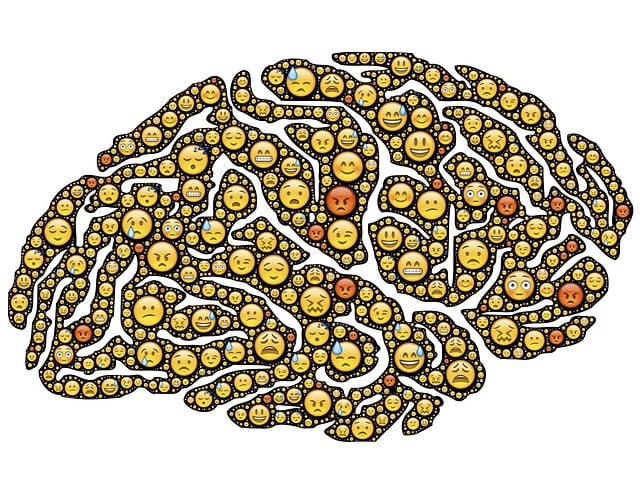Existential psychotherapy is a form of talk therapy that focuses on helping individuals find meaning and purpose in life. By exploring existential questions, such as mortality and personal responsibility, this approach fosters self-awareness, authenticity, and personal growth. Unlike traditional therapies targeting specific symptoms, it empowers clients to take control of their lives and navigate challenges as opportunities for growth. This holistic method is effective for treating conditions like depression, anxiety, and PTSD, improving life satisfaction, coping mechanisms, and resilience, making it a valuable tool in mental health psychotherapy.
“Existential psychotherapy, a profound approach to mental health, emphasizes personal freedom and self-discovery. This therapeutic method delves into the core of human existence, exploring individual meaning and purpose in life. By fostering self-awareness and authenticity, it empowers clients to navigate existential crises and make sense of their experiences.
In this comprehensive guide, we unravel the key principles, techniques, and benefits of existential psychotherapy, offering insights into its role in modern mental healthcare and its real-world applications.”
Understanding Existential Psychotherapy: A Brief Overview

Existential psychotherapy is a form of talk therapy that focuses on helping individuals explore and navigate their unique existence, purpose, and meaning in life. Unlike traditional psychotherapies that primarily target specific symptoms or disorders, existential therapy emphasizes personal freedom, choice, and responsibility. It encourages clients to confront fundamental questions about life, death, and their place in the world, aiming to enhance their overall well-being and sense of authenticity.
This therapeutic approach draws on the philosophical traditions of existentialism, which posits that individuals create their own meaning and purpose through their choices and actions. In the context of mental health psychotherapy, existential therapists help clients overcome feelings of despair, anxiety, or existential angst by fostering a deeper understanding of themselves and their relationships with others. Through open dialogue, self-reflection, and sometimes writing exercises, clients are guided to embrace life’s challenges as opportunities for growth and personal transformation.
Core Principles and Concepts of Existential Therapy

Existential therapy is a form of mental health psychotherapy that emphasizes personal freedom, choice, and meaning in life. At its core, this approach posits that individuals have the power to define themselves through their actions and decisions, even in the face of difficult circumstances. The therapy encourages clients to explore their unique existence, values, and purpose, fostering a deeper sense of self-awareness and authenticity.
This therapeutic model focuses on the present moment and the individual’s subjective experience, encouraging them to confront existential anxieties and find meaning. Key concepts include the idea of death as a motivator for living authentically (known as the “death impulse”), the importance of personal responsibility, and the belief that individuals are ultimately responsible for their own lives and choices. Through open dialogue and introspection, clients are guided to make sense of their existence, accept their freedom, and embrace life with purpose.
The Role of Freedom and Choice in Mental Health

In existential psychotherapy, the concept of freedom and choice is central to understanding and enhancing mental health. This therapeutic approach posits that individuals have the power to shape their lives and find meaning in a world that often feels indifferent or even hostile. By recognizing and embracing their autonomy, clients can navigate life’s challenges with greater purpose and resilience. Freedom isn’t just about making decisions; it’s about cultivating the courage to confront existential anxieties, embrace uncertainty, and take responsibility for one’s actions.
Mental health psychotherapy encourages individuals to explore their values, aspirations, and beliefs, which in turn empowers them to make choices that align with their authentic selves. This process involves confronting fears, letting go of outdated patterns, and developing a deeper understanding of oneself and one’s place in the world. Through this journey of self-discovery and self-acceptance, individuals can experience a profound sense of well-being and fulfillment, ultimately leading to improved mental health and a richer life.
Existential Approach to Self-Awareness and Authenticity

The existential approach to self-awareness emphasizes individual freedom and responsibility in shaping one’s life. This therapy encourages clients to confront existential angst and find meaning in their existence, fostering a deeper understanding of themselves. Through introspection and exploration, individuals are guided to embrace authenticity by accepting their unique experiences, emotions, and perspectives. By doing so, they develop a profound sense of self-awareness that empowers them to make conscious choices aligned with their values and purpose.
In mental health psychotherapy, this approach helps people navigate life’s challenges by promoting personal growth and a deeper connection with their true selves. It encourages clients to question their assumptions, face their fears, and embrace the inherent uncertainty of existence. This process of self-reflection enables individuals to live authentically, making their lives more fulfilling and meaningful in their own unique ways.
Coping with Meaning Crisis: A Key Focus Area

Existential psychotherapy places a significant focus on coping with a meaning crisis, which is often at the heart of many individuals’ mental health struggles. In today’s fast-paced world, people frequently find themselves questioning their purpose and the significance of their lives, leading to a deep sense of existential angst. This therapeutic approach aims to help clients navigate these tumultuous emotions by exploring their unique values, beliefs, and personal meaning systems.
Through dialogue and introspection, psychotherapists guide individuals through a process of self-discovery, encouraging them to confront and accept the inherent uncertainty of life. By fostering a deeper understanding of one’s existential fears and desires, this therapy empowers people to create a more authentic and fulfilling existence, thereby enhancing their overall mental health and well-being.
Techniques and Methods Used in Existential Psychotherapy

Existential psychotherapy focuses on helping individuals explore their sense of purpose, freedom, and responsibility in life. The techniques and methods employed in this form of therapy are designed to foster self-awareness and encourage personal growth. One of the core approaches is existential analysis, which involves deep conversations about life’s meaning, authenticity, and the acceptance of personal freedom and choice. Therapists create a supportive environment where clients can reflect on their unique existence, confront existential angst, and make sense of their experiences.
Another key method is phenomenological exploration, where patients are encouraged to describe their subjective experiences without judgment. This process helps individuals become more attuned to their thoughts, emotions, and sensations in the present moment. Additionally, existential psychotherapists often use techniques like Socratic questioning, which involves asking open-ended questions to prompt clients to explore their beliefs, values, and assumptions. By combining these approaches, existential psychotherapy aims to enhance mental health by promoting a deeper understanding of oneself and one’s place in the world.
Benefits and Limitations: Exploring the Impact

Existential psychotherapy offers a unique and profound approach to mental health and personal growth, with several notable benefits. It encourages individuals to confront their fears, embrace authenticity, and take ownership of their lives. Through exploring existential themes like death, freedom, and meaning, clients develop a deeper understanding of themselves and their place in the world. This process can foster resilience, enhance self-awareness, and promote personal transformation.
However, it’s essential to acknowledge some limitations. Not all individuals may find this form of therapy appealing or effective, as it delves into deeply personal and sometimes uncomfortable existential questions. Additionally, existential psychotherapy might not provide specific tools or strategies for managing symptoms of mental health disorders as directly as other therapeutic approaches. It is best suited for those open to introspection and philosophical exploration, aiming for a more profound shift in perspective rather than immediate symptom relief.
Integration of Existential Therapy into Modern Mental Healthcare

In recent years, there has been a growing recognition of the value of existential psychotherapy in modern mental healthcare. This approach, rooted in the belief that individuals have inherent freedom and responsibility for shaping their lives, integrates profound philosophical concepts with evidence-based therapeutic techniques. By focusing on existential questions such as meaning, purpose, and mortality, existential therapy empowers individuals to confront their fears, embrace authenticity, and find personal fulfillment.
The integration of existential therapy into mental healthcare has been facilitated by its adaptability and effectiveness in treating a range of conditions, including depression, anxiety, and post-traumatic stress disorder (PTSD). Mental health professionals are increasingly incorporating existential perspectives into their practices, offering clients a holistic approach that addresses not just symptoms but also the deeper existential needs that drive human behavior and emotional well-being. This synergistic blend of philosophy and therapy promises to enrich mental healthcare by providing individuals with the tools necessary to navigate life’s challenges with greater purpose and resilience.
Real-World Applications and Case Studies

Existential psychotherapy translates well into real-world applications, offering a unique perspective on addressing various mental health concerns. This approach is particularly effective for individuals dealing with existential crises, anxiety, depression, and identity issues. By encouraging clients to explore their values, purpose, and authenticity, therapists foster a deeper understanding of themselves and their place in the world.
Case studies often highlight successful outcomes, such as improved life satisfaction, enhanced coping mechanisms, and increased resilience. For instance, a study focusing on young adults struggling with career uncertainty found that existential psychotherapy significantly elevated their sense of meaning and purpose. This approach’s ability to empower individuals to take charge of their lives makes it a valuable tool in the realm of mental health psychotherapy.
